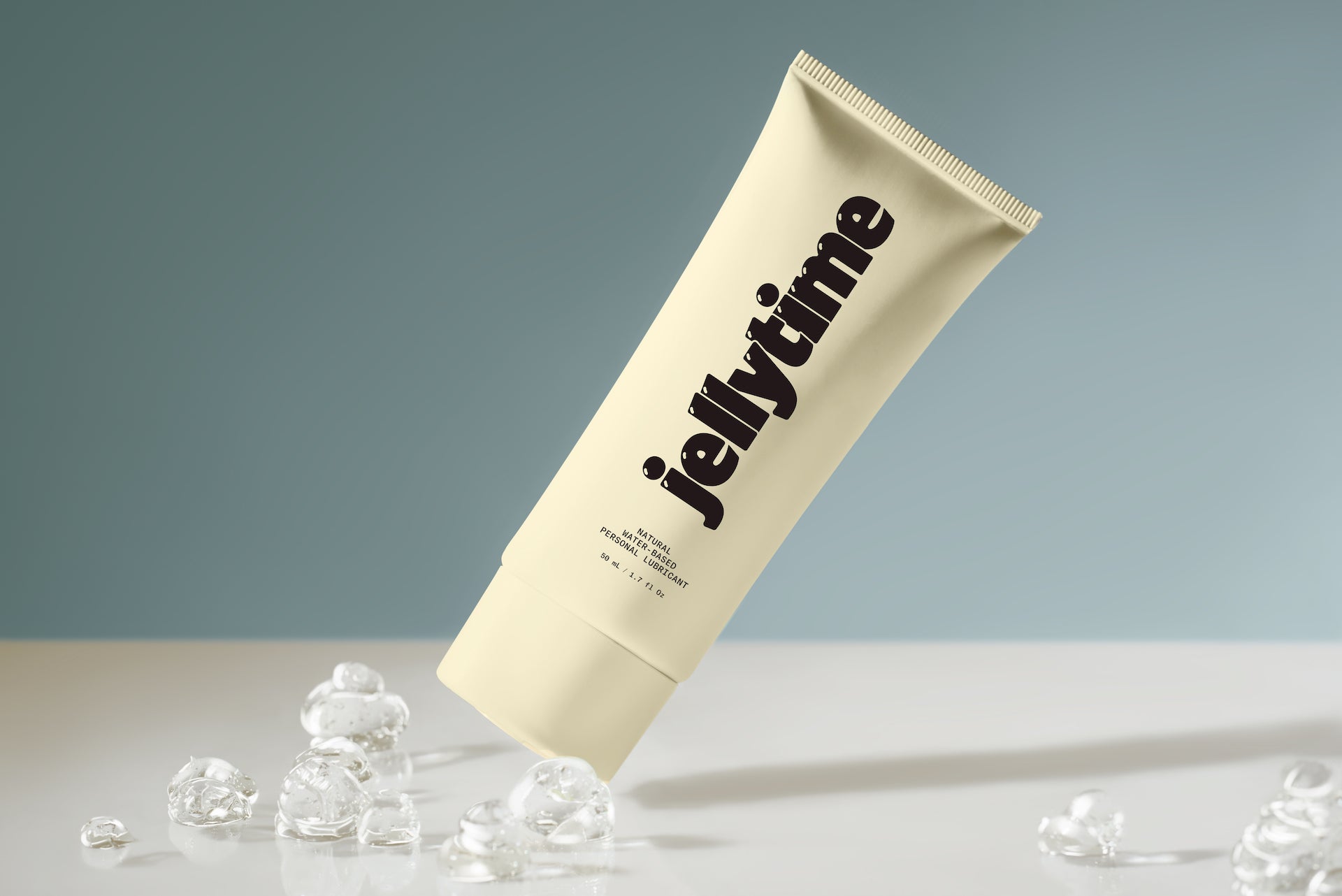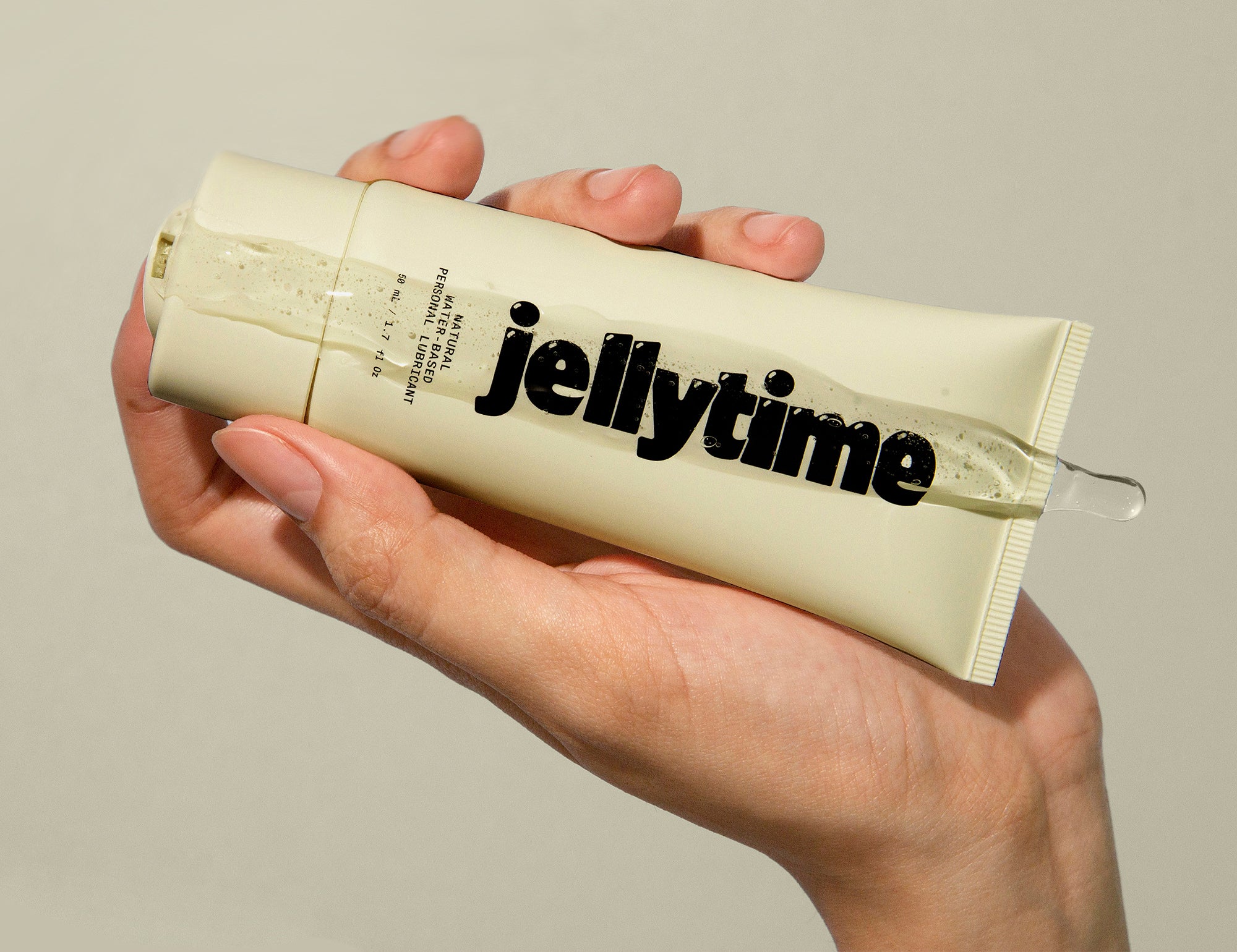
- Introduction
- First, what is the average size of a penis?
- So, how do you even measure penis size?
- Does penis size really matter?
- What is considered a big penis?
- What penis size do cisgender women and other vulva-having partners want?
- What penis size do cisgender men and other penis-having partners want?
- Does losing weight make your penis bigger?
- Does testosterone increase penis size?
- Does a penis have a bone?
- Why is the penis tip mushroom-shaped?
- Conclusion
Common Questions on The Penis
Let's face it, when it comes to our bodies, there are certain topics that can be a bit awkward to talk about. But, it's important to have conversations about them for our overall health and well-being. An example is talking about one's genitalia.
In one of The Sexytime Podcast episodes, Belle and Ava spoke to Dr. Jimmy Songco, a renowned urologist, to share his knowledge on penises. What really struck me is how he talked about erections, comparing them to tofu or ripe bananas. To me, this is the kind of approach on how we can understand the penis, without any shame.
In this blog, I delve into the questions we always get in the podcast in the hope that we would all get a better understanding of the penis.
First, what is the average size of a penis?
It's a topic often discussed in locker rooms, and on internet forums, and one that typically piques the curiosity of many men - what exactly is the average size of a penis? Scientific studies have delved into this area extensively, with results that may surprise some. A study published in the "British Journal of Urology International (BJUI)" suggests that the average length of a flaccid penis is 3.61 inches, which extends to an average of 5.16 inches when erect.
The same study found that the average circumference (or girth) of a flaccid penis is 3.67 inches, and the average for an erect one is 4.59 inches. It's crucial to note, however, that the study highlighted significant variation in penis sizes among its research participants.
Here are some key takeaways from the research:
- Most men fall into the 'average' size range, with fewer men falling on either extreme of the size spectrum.
- Penis size is not related to race, foot size, or hand size, myths that continue to pop up even in this day and age.
- Most importantly, penis size does not correspond to sexual satisfaction, performance, or masculinity.
So, how do you even measure penis size?
I've had male friends who told me that as long as they are above average, they're okay with the size. Yet, there's the age-old question that many men find themselves asking is: "How do I measure my penis size accurately?" Well, here's how you do it.
First, be sure your penis is at its fully erect state - this offers the most consistent measurement. Hold a ruler or measuring tape at the base of your penis, where it attaches to your body. Measure up to the very end of your penis tip. Just remember, it's not a competition, and there's no right or wrong size You're just getting baseline data for your own understanding and enhancing your penis health.
But remember, penis size isn't everything. It's how you use it that matters!
Does penis size matter?
Let's be frank – there isn't a man out there who hasn't questioned the importance of his penis size at least once in his lifetime. Society and media may push the notion that size matters significantly, still, when you ponder biologically and scientifically, the scenario is quite different.
An average sized penis is enough to fulfill its biological duty - that is, to impregnate. The obsession with penis size is often stimulated more by cultural, psychological, and sociological factors rather than physiological necessities.
In 2015, a study published in the Journal of the British Association of Urological Surgeons suggested that 85% of women were satisfied with their partner's penis size, while only 55% of men were satisfied with their own penis size. This clearly indicates that the discontentment related to size is often self-assumed and inflated.
Another review published in the British Journal of Urology International has shown that most men who seek surgery to increase penis size are average-sized. They perceive themselves as under-endowed due to inaccurate concepts of normalcy.
Remember, the world around us might constantly portray an unrealistic "bigger-is-better" scenario but don't let these overwhelming messages compromise your confidence. Ultimately, it's more about how you carry yourself and your overall personality that truly counts.
What is considered a big penis?
What really sizes up as a big penis? This conversation isn't complete or accurate without considering numerous studies that have tried to answer this question.
For many people, a penis is considered 'big' if it is above the average erect size of around 5 et 6.3 inches. Some studies affirm that most of the 'larger than average' penises fall in the 6 to 7-inch range when erect. There's a relatively small number of men globally that possess an erect penis over 8 inches, rendering these sizes as notably 'big'.
Remember, the most important thing is to appreciate and care for whatever you have because size isn't everything. There's a significant amount of misinformation out there, and understanding the science can boost your confidence and the maintenance of your penis health.
What Penis Size Do Cisgender Women and Other Vulva-Having Partners Want?
Perhaps surprisingly, several scientific studies suggest that for the majority of women, the size of a man's penis is far less important than other characteristics, such as his personality, emotional intelligence, and how he treats his partner. Taking into account various pieces of research:
A study published in the journal PLoS ONE found that 85% of women were satisfied with their partner's penis size, while only 55% of men were happy with their penis size.
Another study published in BJU International revealed that women prefer a penis size only slightly above average, and this preference only really matters for one-time sexual partners. In long-term relationships, personality and emotional factors become more important than penis size.
So, essentially, most studies seem to point towards a low correlation between penis size and sexual satisfaction. With that in mind, remember that being a considerate, respectful, and emotionally healthy partner is probably more essential to sexual satisfaction than dimensions alone.
What Penis Size Do Cisgender Men and Other Penis-Having Partners Want?
Some key points to consider here are: - Men often tend to undervalue their size, thanks to societal pressures and unrealistic portrayals in media. - Bigger doesn't always mean better. Quantitative measurements are not the sole determinants of sexual satisfaction. - Confidence and how one uses what they've got are far more important than size alone.
Does Losing Weight Make Your Penis Bigger?
The question of whether losing weight makes your penis bigger has intrigued many men worldwide. Various research findings provide an affirmative answer to this question, although indirectly.
It's important to make a distinction here — weight loss does not technically increase the size of your penis. However, shedding those extra pounds can give an illusion of a bigger package. Here's why:
- Body Fat and Visibility: Men with higher body fat percentages tend to have 'buried' penises; that is, the penis appears smaller as the fat in the pubic area hides its base. Thus, when a man loses weight, the penis becomes more visible and might seem larger, despite its size remaining constant.
- Blood Flow: Obesity is usually linked with vascular diseases that can decrease blood flow to the penis. This can potentially affect erection quality and penis size during an erection. When you lose weight, blood circulation improves, leading to better erections, which can again give the impression of a larger size.
It is also vital to know that maintaining healthy body weight is crucial for overall penis health. Obesity can lead to many health issues, such as diabetes and heart disease, which can ultimately affect your sexual health. Therefore, make your wellness a priority, not just for penis health, but for your complete wellbeing.
Does Testosterone Increase Penis Size?
Research studies have established a clear connection between testosterone and the development of the male reproductive system. In fact, during the fetal stage, testosterone influences the formation of male genitalia, which includes the penis length and size. However, once a boy reaches puberty and completes his growth, testosterone has little to no impact on penis size.
An excess intake of testosterone in adults does not increase in penis size. Instead, it may lead to a range of health issues like hair loss, acne, and an increased risk of heart disease.
When boys hit puberty, the levels of testosterone in their bodies start to increase. This hormonal change is associated with many physical changes, and one of them is an increase in penis size. After puberty, the size of the penis is generally stable and does not change significantly.
It's a common myth that testosterone supplements can increase penis size in adults, but no science-backed evidence supports this claim.
Does a Penis Have a Bone?
Contrary to what some might think, the human penis doesn't contain a bone. But have you ever wondered why? Interestingly, many mammals do have a bone in their penis, known as the baculum.
So what exactly is the baculum? Also known as the penile bone, the baculum is a boney structure found in the penis of many placental mammals. It aids copulation, especially in species where mating lasts longer than a few minutes. From walruses to rodents, the baculum commonly offers different sizes and shapes across species. For these creatures, the baculum provides necessary rigidity during mating.
But then the question arises: why don't humans have it? Well, the simple answer would be evolution. Over vast time scales, human mating habits evolved differently than those species that use baculums. Humans, for example, have shorter copulation times, making a baculum unnecessary. Since humans use erection as a sign of sexual readiness, the absence of a baculum could provide clear sexual communication between partners.
Learning about these intriguing facets of the penis and the male reproductive system can help men better understand their bodies and maintain good penis health. It’s genuinely fascinating just how varied nature can be!
Why is the Penis Tip Mushroom-Shaped?
The unique anatomy of the penis, particularly its intriguing mushroom-tip shape, has been a major topic of conversation throughout the centuries.
Various theories from medical experts and anthropologists exist as to why the penis has a mushroom-shaped head or glans. One compelling explanation focuses on evolution. Generations of procreation have supposedly led to this specific design to enhance both sexual pleasure and the delivery of sperm for successful reproduction.
Firstly, the flared shape is believed to directly stimulate pleasure receptors in both female and male bodies, thus encouraging sexual activity. As evolutionary theory suggests, anything that promotes procreation has a high likelihood of being passed down through generations.
Secondly, the mushroom shape acts as an efficient 'scoop' during intercourse. It's believed to aid in the removal of rival sperm, providing a competitive edge in fertilization. This controversial theory, known as "sperm displacement " is still being tested and studied, but it certainly offers a fascinating perspective.
Finally, the tip's shape also assists in maintaining an erection by preventing blood from flowing out of the penis quickly. So, this mushroom-like shape isn't just distinct, but indeed, extremely functional!
In conclusion, prioritizing penis health is fundamental to the overall well-being and self-confidence of every man. It is essential to note that: - Penis size doesn't determine one's manhood or capability to satisfy a partner sexually. - Regular check-ups and maintaining hygiene of the male reproductive system can prevent multiple health issues. - Leading a healthy lifestyle with proper nutrition and regular exercise can improve both the functioning and appearance of the penis.
Finally, it's important to remember that every penis is unique, just like the individual it belongs to. Embrace yours as it is and take good care of it.
Sources:
https://www.bostonmedicalgroup.com/penis-size/
https://journals.plos.org/plosone/article?id=10.1371/journal.pone.0133079
https://www.healthline.com/health/mens-health/average-penis-size#research






